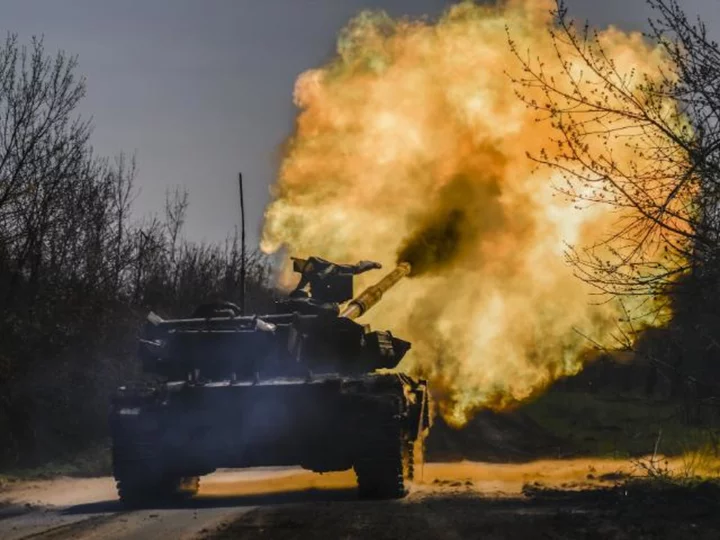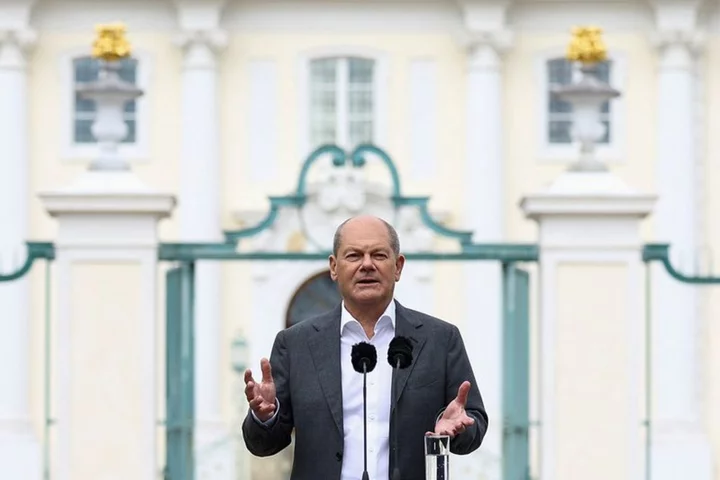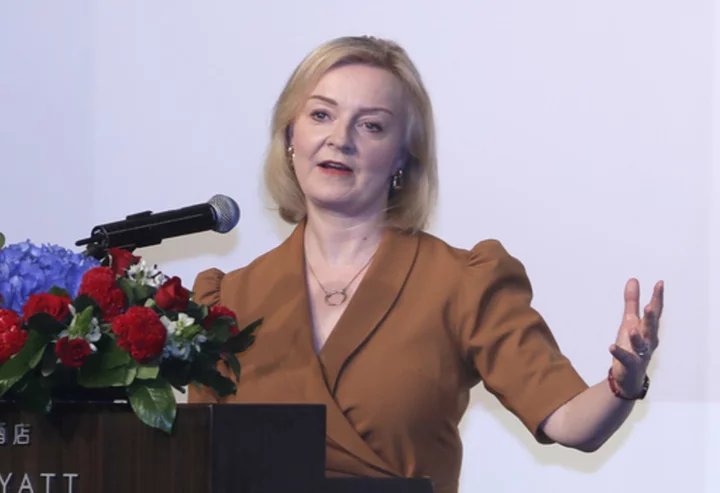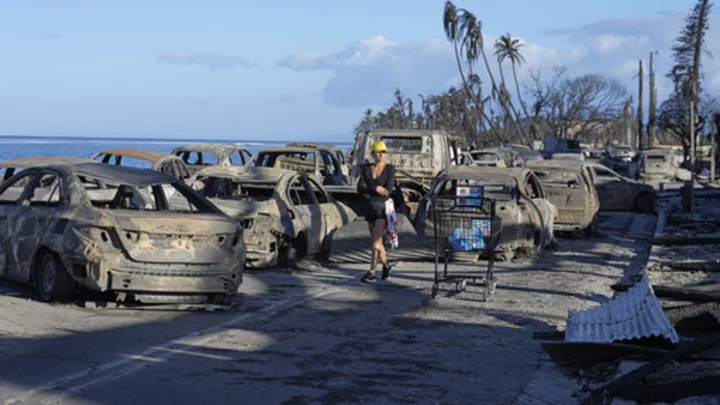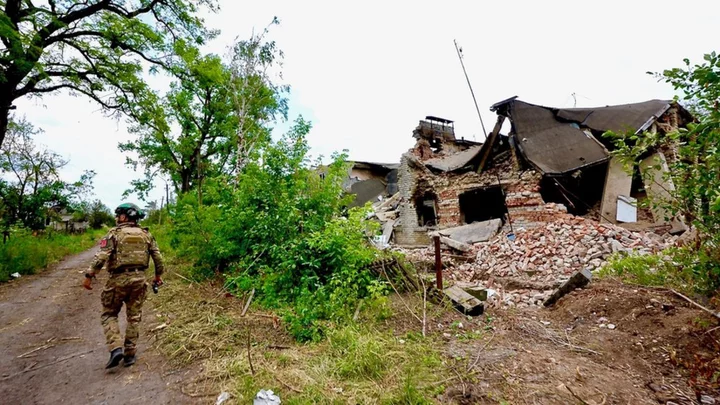The war in Ukraine has brought an enormous human toll: Thousands of civilians have been killed, millions have been forced to flee overseas, it has destroyed homes, schools and hospitals. But beyond the immediate, visceral impacts, the conflict is also causing a climate disaster at a time when the world is already struggling to meet climate goals, according to a new report.
A team of carbon accounting experts has evaluated the climate impact of the first year of the conflict, which started in February 2022.
They found that a total of 120 million metric tons of planet-heating pollution can be attributed to the first 12 months of the war, according to the report published Wednesday. That's equivalent to the annual emissions of Belgium, or those produced by nearly 27 million gas-powered cars on the road for a year.
"It's the first time that the emissions of a war have been mapped on such a comprehensive scale," Lennard de Klerk, the report's lead author and an expert in war-related emissions, told CNN.
The report, titled Climate Damage Caused by Russia's War in Ukraine, follows on from a first interim assessment presented at the UN COP27 climate conference in November 2022.
Data was drawn from a wide range of sources, including satellites, scientific papers, expert interviews, industry reports and open-source intelligence.
The team of researchers looked at the climate impact of the planet-heating pollution produced directly from warfare, including fuel use for tanks, planes and other equipment, construction of fortifications and production of weapons. They also examined impacts from the consequences of the war, such as fires, destruction -- and required reconstruction -- of infrastructure and changes to the European energy mix.
Nearly 22 million metric tons of planet-heating pollution came from warfare, almost 20% of the total emissions attributable to the conflict, the report found.
But this may be a conservative estimate. The emissions of the military were challenging to calculate, de Klerk told CNN. It's not possible, for example, to just get in touch with Russia to ask them how much fuel they are using in their tanks and planes, he said.
"We probably will only be able to really get a more accurate estimate once the war is over," de Klerk said.
Others were easier to calculate, especially the amount of planet-warming pollution from fires caused by shelling, bombing and explosions. Using remote monitoring tools based on satellite data, the researchers concluded that these fires produced nearly 18 million metric tons, accounting for 15% of the total war emissions
The number of fires burning over an area larger than one hectare (2.5 acres) increased 36-fold in the first year of the war compared to the 12 months before it started, according to the report. While the winter months saw fire activity dip, it is expected to pick up again as summer approaches, de Klerk said.
The biggest climate impact, however, accounting for almost half the pollution from the war, will come from the post-war reconstruction of damaged and destroyed buildings and infrastructure, the report found.
Rebuilding will require vast amounts of materials such as cement and concrete, which produce very high levels of carbon pollution.
Over the course of the conflict, increasing Russian attacks on and destruction of energy infrastructure has pushed up the planet-heating pollution estimated to be produced during reconstruction, the report found.
"The biggest chunk of the emissions are still in the future reconstruction of Ukraine," de Klerk said.
The report also looked at impacts outside of Ukraine, including the methane pollution released after the sabotage of the Russian gas pipelines Nord Stream 1 and 2 in September 2022. "We had an enormous release of methane emissions... that was really a surprise," de Klerk said.
Changes to Europe's energy mix were also analyzed but found a mixed outcome.
Very high prices for gas and oil following Russia's invasion caused Europe to make some decisions, including burning more coal, which increased levels of planet-heating pollution. But the conflict also helped usher in a faster transition to renewables, as countries looked to lessen their dependence on Russian oil and gas.
The report authors even calculated the extra planet-warming pollution created by airlines rerouting flights to avoid Russian and Ukrainian airspace.
"If you look at the environmental costs of what's happening in Ukraine, that war is a catastrophe when it comes to carbon emissions," James Appathurai, NATO's deputy assistant secretary general for emerging security challenges, told Reuters.
As the war continues to unfold in Ukraine, "the human catastrophe and the damage that's being done to the country is overwhelming," de Klerk said. Climate considerations will not be what's occupying Ukrainians at the moment, he acknowledged, adding: "It's a matter of survival."
But it is still important to analyze and document the often overlooked, longer-term climate impacts of the conflict, he said.
"We want to show the world that the damage that Russia is doing with these acts of aggression is not only within Ukraine, but impacts the whole world through the additional emissions of greenhouse gases, which is everyone's problem," he said.
Global commitments to keep warming within 1.5 degrees Celsius of pre-industrial levels are already slipping out of reach.
Rachel Kyte, dean of The Fletcher School at Tufts University, who was not involved in the research, said the report highlighted the crucial impact of war on the world's ability to tackle climate change
"The report raises important questions about including warfare in countries' climate reporting and their transitions to net-zero and to greater resilience," she told CNN. "For the whole of Europe, and the world, Ukraine's reconstruction, following a just peace, must be green."
The war in Ukraine has shown the importance of understanding the climate impact of warfare, de Klerk said, adding: "It's something that we simply cannot continue to ignore."

